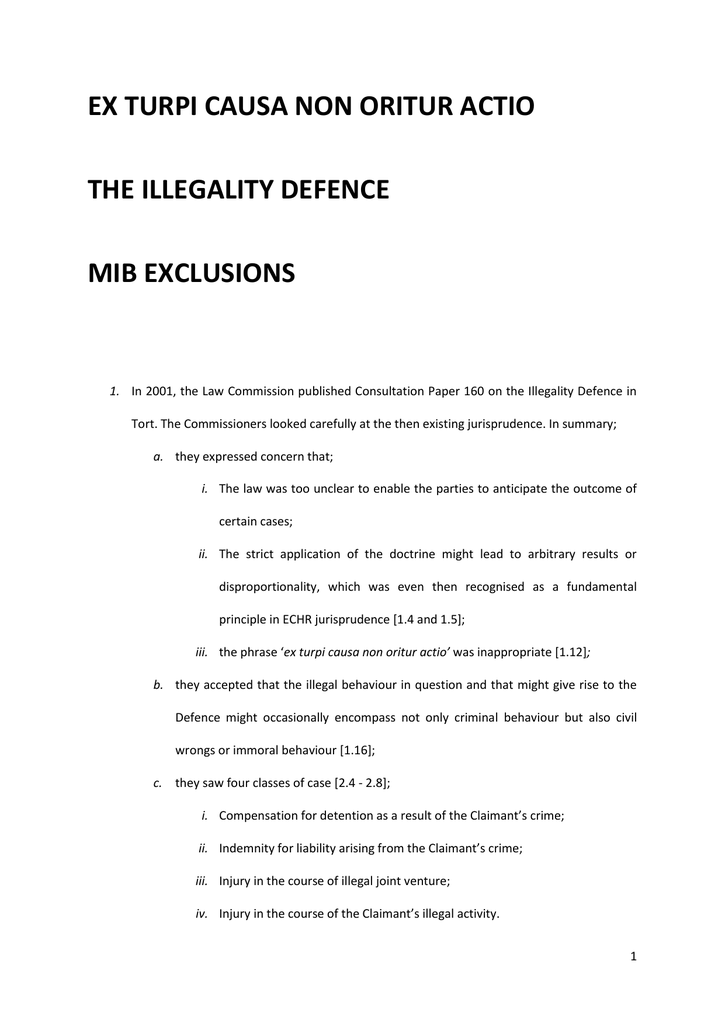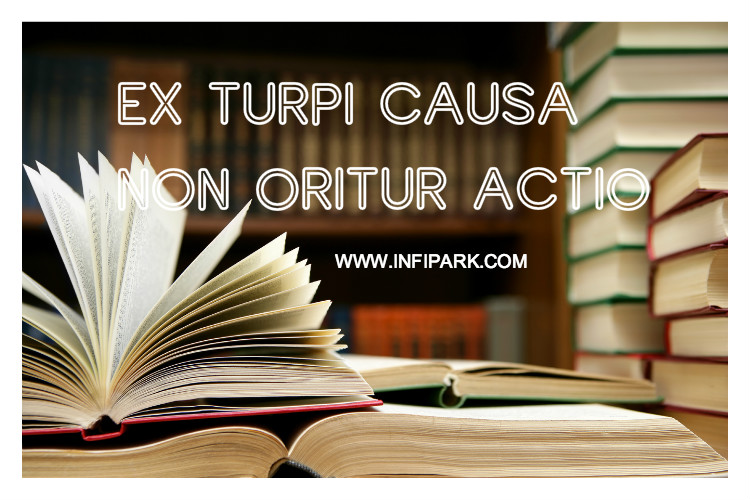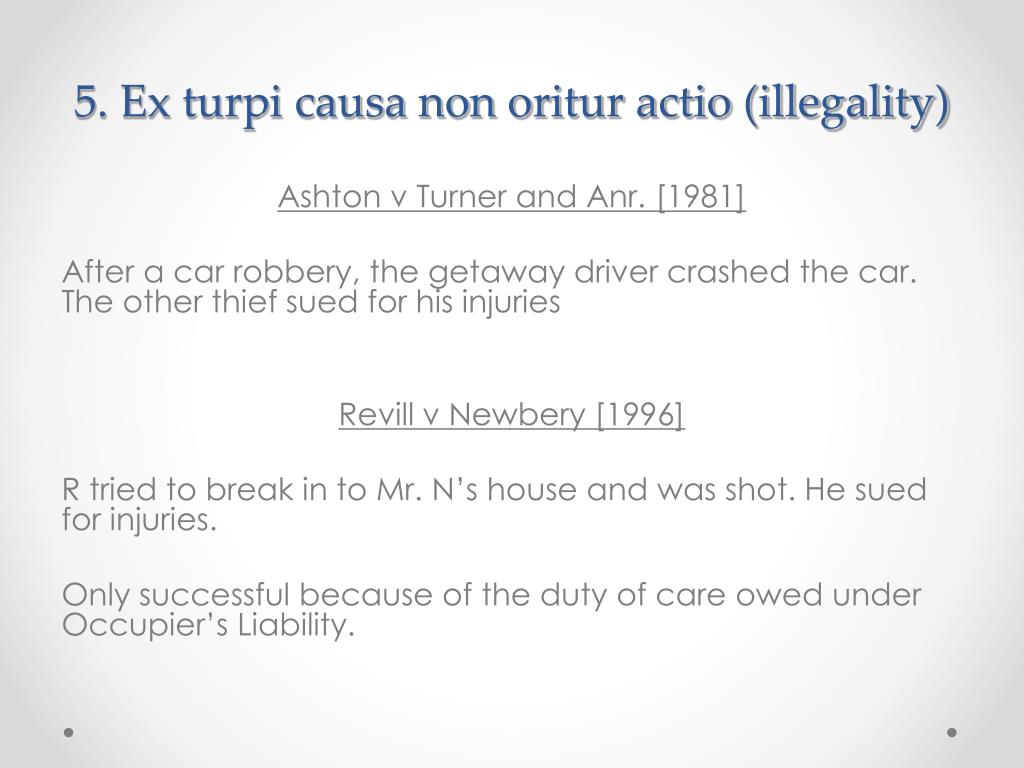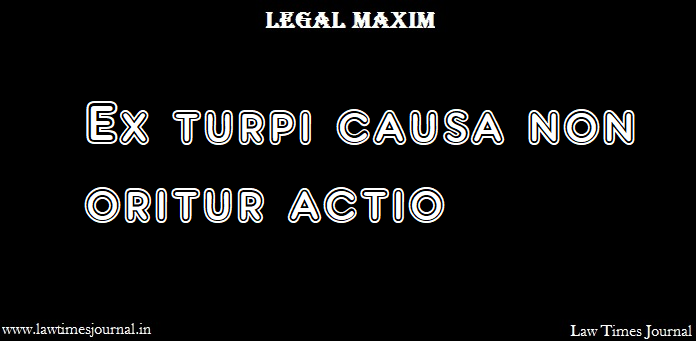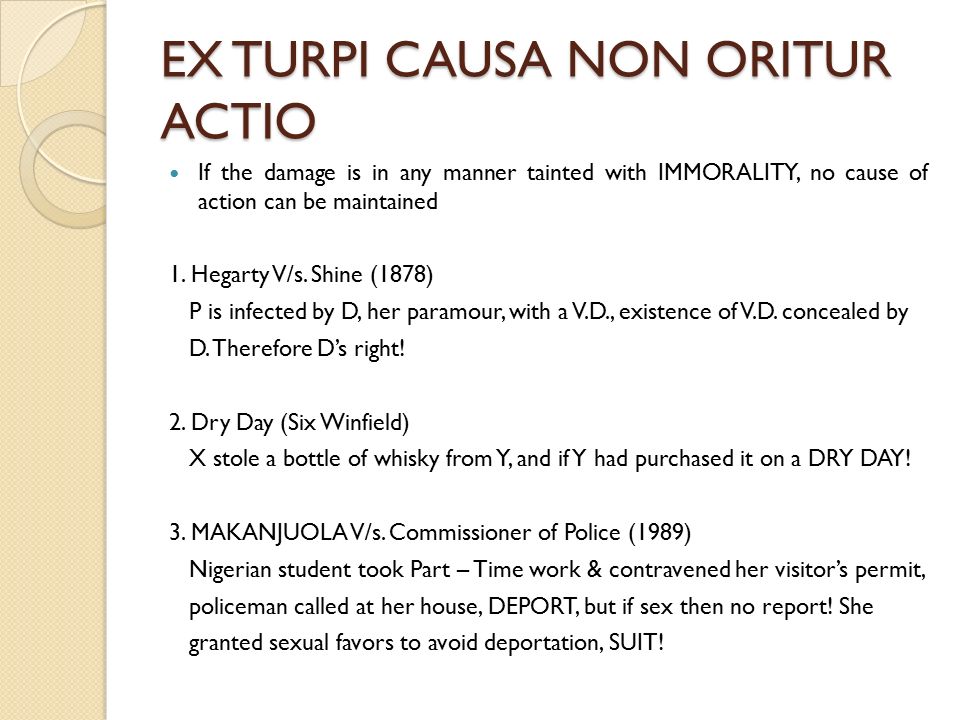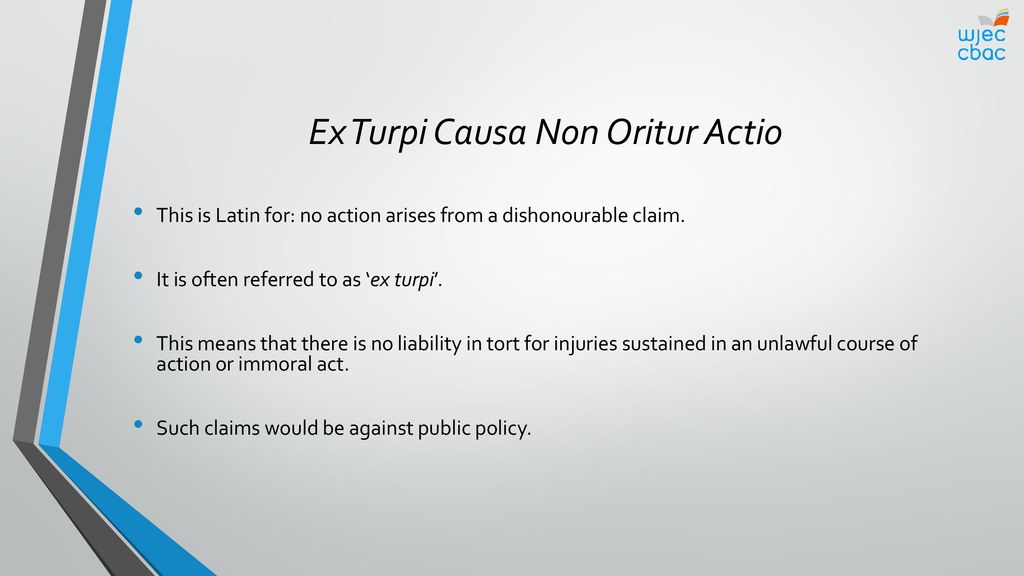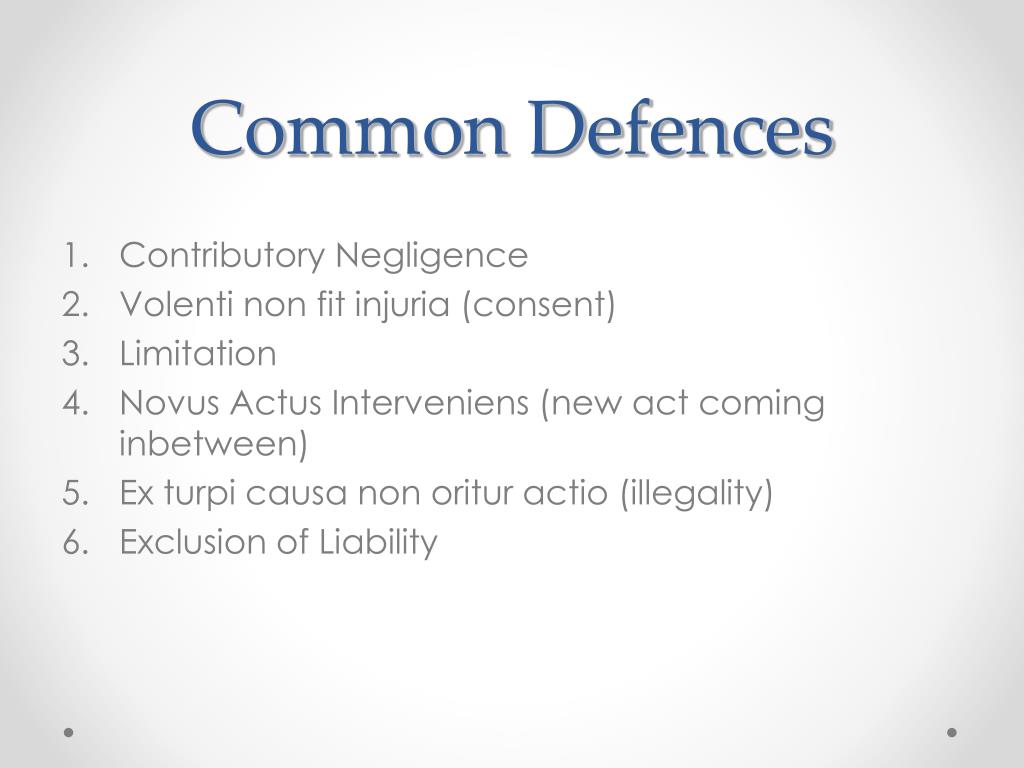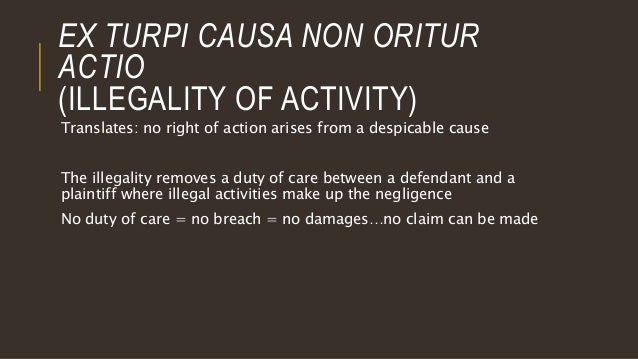Ex Turpi Causa Non Oritur Actio Case Law

Ex turpi causa non oritur actio which implies that no action can arise from any illegal act.
Ex turpi causa non oritur actio case law. In the above mentioned case also the principle of ex turpi causa non oritur action was applied. It is often referred to as the illegality defence although it extends. Matters have become more complex by a series of conflicting supreme court decisions. Post author by kierxote.
Where the maxim of ex turpi causa is successfully applied it acts as a complete bar on recovery. One day the gardener shouted abusive words at the wife of the café owner. This maxim applies not only to tort law but also to contract restitution property and trusts. In other words if one is engaged in illegal activity one cannot sue another for damages that arose out of that illegal activity.
In this case an old gardener who had disputes with a café owner. As set out in the case of patel v mirza 2016 uksc 52. It is one of the defenses which can exempt the defendant from his liability because the plaintiff has also committed an illegal act. The doctrine of ex turpi causa non oritur actio was applied as far back as 1775 when the judgment in holman v johnson confirmed that no court will lend its aid to a man who founds his cause of action upon an immoral or an illegal act.
The purpose of this law is for the courts to refuse a party benefiting from engaging in a serious unlawful act. This case is also one of the most famous cases related to this principle. Although the availability of this defence arises in a variety of contexts its scope has yet to be clearly defined. Quoted in a subsequent supreme court of canada decision of 1894 walsh v trebilcock justice lindley wrote.
In scott v brown 1892. This maxim applies not only to tort law but as well as to contract restitution property and trusts. The latin maxim ex turpi causa non oritur actio refers to the fact that no action may be founded on illegal or immoral conduct. Ex turpi causa non oritur actio.
Ex turpi causâ non oritur actio this old and well known legal maxim is founded on good sense and expresses a clear and well. The maxim ex turpi causa non oritur actio prevents a claim being made where it is in some way tainted by the claimant s illegal act or other contravention of public policy rules. Ex turpi causa non oritur actio latin from a dishonorable cause an action does not arise is a legal doctrine which states that a plaintiff will be unable to pursue legal remedy if it arises in connection with his own illegal act. However there was an interesting case which established a test for illegality and ex turpi causa.
